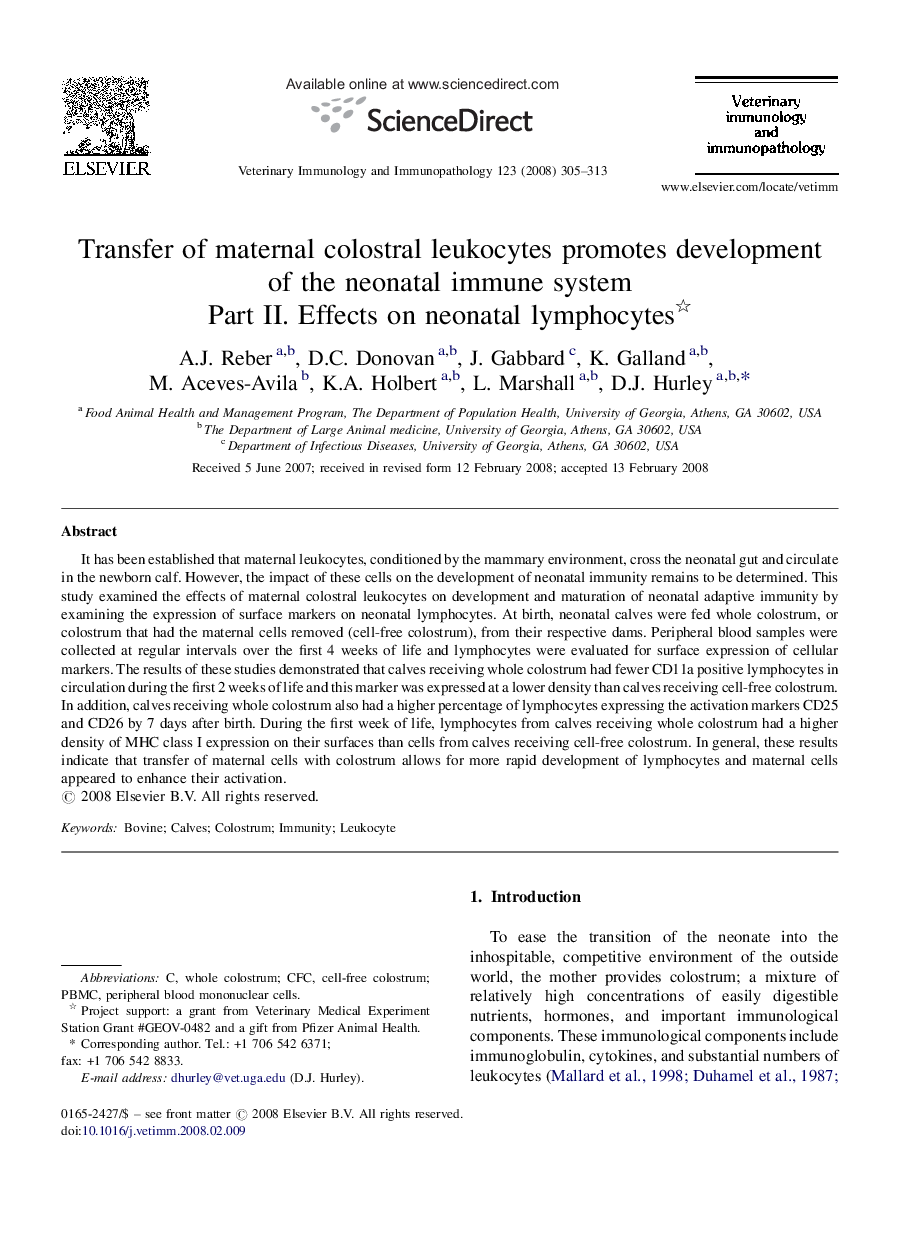| Article ID | Journal | Published Year | Pages | File Type |
|---|---|---|---|---|
| 2462789 | Veterinary Immunology and Immunopathology | 2008 | 9 Pages |
It has been established that maternal leukocytes, conditioned by the mammary environment, cross the neonatal gut and circulate in the newborn calf. However, the impact of these cells on the development of neonatal immunity remains to be determined. This study examined the effects of maternal colostral leukocytes on development and maturation of neonatal adaptive immunity by examining the expression of surface markers on neonatal lymphocytes. At birth, neonatal calves were fed whole colostrum, or colostrum that had the maternal cells removed (cell-free colostrum), from their respective dams. Peripheral blood samples were collected at regular intervals over the first 4 weeks of life and lymphocytes were evaluated for surface expression of cellular markers. The results of these studies demonstrated that calves receiving whole colostrum had fewer CD11a positive lymphocytes in circulation during the first 2 weeks of life and this marker was expressed at a lower density than calves receiving cell-free colostrum. In addition, calves receiving whole colostrum also had a higher percentage of lymphocytes expressing the activation markers CD25 and CD26 by 7 days after birth. During the first week of life, lymphocytes from calves receiving whole colostrum had a higher density of MHC class I expression on their surfaces than cells from calves receiving cell-free colostrum. In general, these results indicate that transfer of maternal cells with colostrum allows for more rapid development of lymphocytes and maternal cells appeared to enhance their activation.
